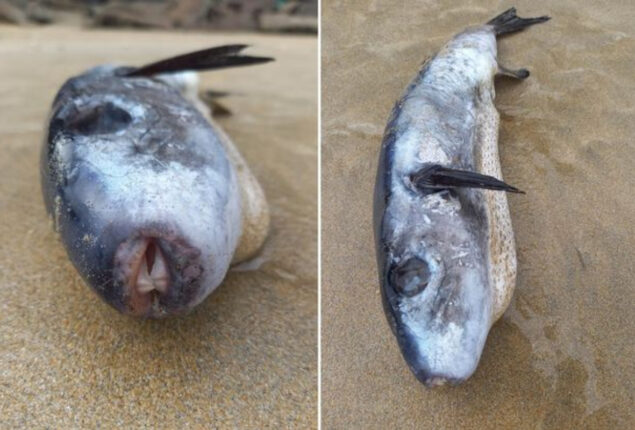Pheasant Island nationality changes every six months
Europe's Pheasant Island is one of these places. It has a unique...

Deadly fish with toxin 1,200 times deadlier than cyanide
A poisonous fish up to 1,200 times more lethal than cyanide was discovered on a British beach.
Constance Morris was on a family vacation in Newquay, Cornwall, when work followed her to Towan Beach, where she immediately recognised something peculiar had washed up.
She approached a fish being pecked at by seagulls and quickly realised it was an oceanic puffer, which contains tetrodotoxin, which is up to 1,200 times more poisonous than cyanide, according to National Geographic.
One fish is said to contain enough to kill 30 adult humans, and there is no known antidote.
Experts believe they’re unusual on British soil, and Constance, who collects specimens for the Cornwall Wildlife Trust, didn’t recognise it.
Fortunately, she was wearing gloves at the time of the unexpected encounter.
“While waiting for all the family to gather, I was just looking out over the beach when I noticed some black back gulls having a peck at a fish.,” she explained.
“I record dead marine animals for the trust’s Marine Strandings Network and couldn’t not go down to see what it was.”
“As I walked up to the fish I instantly knew it was an unusual find.”
“It’s been identified by a few people as a Lagocephalus lagocephalus, the oceanic pufferfish, which can be highly toxic,” she explained.
“So it’s advised you leave them alone and certainly don’t touch.”
“I didn’t know what this fish was, but I’ve found odd fish before and know these animals can be important and of interest to scientists.”
“So, being ever ready to scoop something unpleasant off the beach, I bagged it up and put it in my backpack.”
“I am just lucky I carry a kit with me at all times for just this sort of thing.”
she added, “Good job I keep marigolds in my kit.”
Tetrodotoxin poisoning is characterised by numbness and paralysis that spreads throughout the body, eventually leading to death due to respiratory failure if a large enough dose is consumed.
Miss Morris described the fish as being around 12 inches long, with a characteristic set of teeth known as a “beak,” a flabby white underside, and a stubby face.
According to Matt Slater, a marine conservation officer with the Cornwall Wildlife Trust, he only has a few records of the species washing up.
Catch all the Trending News, Breaking News Event and Latest News Updates on The BOL News
Download The BOL News App to get the Daily News Update & Follow us on Google News.